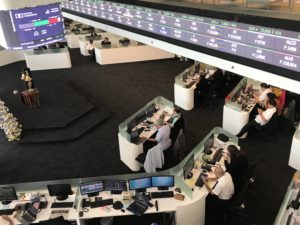Debt watcher Moody’s Investors Service has reverted to “stable” its outlook for the Philippine banking system, rosier than the previous “negative” view, on the back of an expected “mild” economic recovery from the pandemic-induced recession.
At the onset of the COVID-19 pandemic, Moody’s in April last year changed its industry outlook to negative from stable due to expectations that the then stringent lockdown would not only negatively impact the Philippine economy as a whole, but also raise asset risks and put pressure on banks’ profitability.
A year later, Moody’s expects the Philippines’ gross domestic product (GDP) to “gradually recover in 2021 as an easing of measures to contain the coronavirus outbreak and fiscal support lead to a gradual improvement in consumer spending and investment,” it said on Tuesday in its update titled “Gradually improving economy supports stable outlook.”
“However, a resurgence in infection rates and a reinstatement of some social-distancing measures will slow the economic recovery in the first half of 2021,” Moody’s said, referring to the more stringent quarantine in areas accounting for half of GDP since late March.
While the economy was on track to a slow recovery, Moody’s warned of persisting high asset risks, no thanks to prolonged restrictions on business activities.
“Nonperforming loans will increase in 2021 as loan moratoriums as part of relief measures expired at the end of 2020. Ongoing social distancing measures, though less restrictive than in 2020, amid a high unemployment rate and weak consumer sentiment, will continue to weigh on the debt repayment capacity of retail borrowers and some small- and medium-sized enterprises,” Moody’s said.
“Large corporate groups’ debt repayment capacity deteriorated materially in 2020 and remains a key source of systemic risk because banks’ loans are heavily concentrated on them,” it added.
Moody’s nonetheless said the domestic banking sector was expected to sustain sufficient capital buffers, stable profitability and favorable funding conditions due to strong private banks supported by a “proactive” Bangko Sentral ng Pilipinas.
“The likelihood of government support remains strong. We expect the government to prioritize systemic stability and support for rated banks when needed. It is unlikely to adopt a bail-in regime in the next 12-18 months,” it said. INQ


